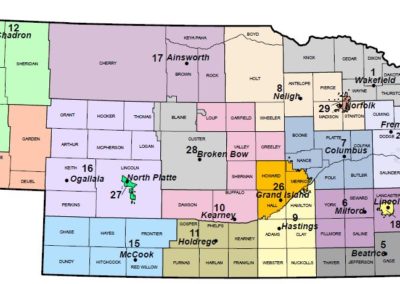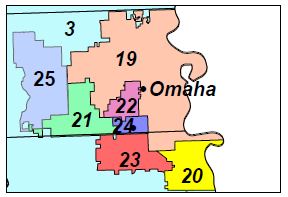Parents as Stakeholders
Parents as Stakeholders – Parents as Leaders
As parents we make many decisions for our families and children every day from what to eat for breakfast to structuring bedtime rituals and everything in-between. There are also the bigger decisions we are faced with such as finding a pediatrician, finding child care, and how best to support our children’s learning in school to name a few.
Having a child with special needs and/or health care needs exposes us to the disability world, to special education, to the medical world and possibly an entire host of governmental systems and agency programs we might have never realized existed before.
We quickly become experts at finding resources and navigating systems. Such exposure can lead to involvement.
As parents we have a voice to share and an important story to tell. Our experiences are valuable and can be used to change and improve lives for the better. As such we are natural stakeholders for many different systems and programs and that can offer a path to become Parent Leaders.
What is Parent Leadership?
Meaningful Parent leadership occurs when parents gain the knowledge and skills to function in meaningful leadership roles and represent a ‘parent voice’ to help shape the direction of their families, programs and communities. Parent Leadership is successfully achieved when parents and professionals build effective partnerships and share responsibility, expertise and leadership in decisions being made that affect families and communities. The parents involved in these collaborations are called Parent Leaders.
Throughout the country, parents and professionals are working together in new ways. They are participating jointly in local, regional and national planning processes, collaborating as grant reviewers and program evaluators, and serving on advisory boards and coalitions. Working together, the voices of parents and professionals are shaping policy and practice to make a positive difference in the lives of children and families.
How can I become a Parent Leader?
There are many ways you can be involved in providing the parent voice and be a needed stakeholder in various agencies and programs across the state. Below is a quick reference to the opportunities to participate. Areas listed include:
- early childhood
- school aged
- transition age (16+)
- medical/health
- mental health
- Nebraska Boards and Commissions
- Boards of Organizations
- National Organizations
You can access a listing and description of specific committees and groups in Nebraska here: (Click Here)
Trainings for Parent Leaders
Nebraska Trainings:
PTI Nebraska offers a variety of different trainings to assist parents in their role as the voice for their child and for roles as being a voice for all children. The following are some of the free workshops offered to parents interested in developing skills to being a stakeholder in a variety of settings.
- Telling Your Family Story
- It’s Not What You Say, It’s How You Say It
- Parental Advocacy 101
- ABCs of Parent Leadership
- Parents as Stakeholders (coming soon)
National/On-Line Trainings:
Partners in Policymaking: The goal of Partners in Policymaking is to educate participants to be active partners with those who make policy. Free courses are available in five areas 1) Living, 2) Time, 3) Education, 4) Making your case and 5) Employment. For more information go to: http://partnersonlinecourses.com/
Comments/Questions/Information:
- Interested in being a parent stakeholder/leader?
- Interested in PTI trainings?
- Would you like to discuss having your agency/group be added to the list for parent stakeholders?
- Other comments/questions?
Contact Connie Shockley at PTI Nebraska at 402-403-3911 or email at cshockley@pti-nebraska.org
COMMITTEES/COUNCILS
There are many different committees both at the local level and state level that are looking to have parents as part of their groups. Below is a list of a few organizations and their contact information.
EARLY CHILDHOOD
PLANNING REGION TEAMS (PRTs) are local interagency coordinating councils responsible for the provision of early intervention services for children birth to three. Part of their responsibilities include looking at gaps and barriers in their communities for all families of children birth to five and coordinating with various community agencies to help bridge those gaps among other duties.
There are 29 PRTs across the state. PRTs require 20% of their membership to be parents of children with special needs up to age 12. You can learn more about early intervention, PRTs and contact information here: http://edn.ne.gov
You can find the contact for your specific Planning Region Team here, http://edn.ne.gov/cms/planning-region-teams/prt-contacts.
EARLY CHILDHOOD INTERAGENCY COORDINATING COUNCIL (ECICC) is the state committee that was established to advise and assist collaborating agencies working in early childhood to carrying out state and federal requirements and education initiatives. The council meets four times a year and is required to have 20% parent representation. For more information go to: http://www.education.ne.gov/ecicc/#
ALL AGES
Nebraska Special Education Advisory Council (SEAC) is a state advisory panel for the purpose of providing policy guidance with respect to Special Education and related services for children with disabilities. The responsibilities include becoming knowledgeable about research-based educational practices and reviewing state activities designed to improve outcomes for children with disabilities. The Council consists of parents, professionals and representatives from various state agencies who serve children birth to age 21. For more information go to: http://www.education.ne.gov/sped/seac.html
Nebraska Planning Council on Developmental Delays is a governor-appointed state council that focuses on improving the system of supports for persons with disabilities and their families. Goals concentrate on persons who experience a severe disability that occurs before the age of twenty-two, including persons with physical disabilities, mental/behavioral health conditions, and developmental disabilities. Support systems across the lifespan are examined. http://dhhs.ne.gov/developmental_disabilities/Pages/ddplanning_index.aspx
- There are also six Regional Councils to meet the State Council’s goals at local levels and to assist with grant reviews, hosting public forums, and advocacy efforts. Information and contacts can be found here: http://dhhs.ne.gov/developmental_disabilities/Pages/ddplanning_regcouncils.aspx
SCHOOL AGE 5-21
School Districts may also have committees or councils to look into:
- District Special Education Advisory Councils – some school districts may have their own councils to address concerns inside the district around special education such as Omaha Public Schools: Omaha Public Schools: http://district.ops.org/DEPARTMENTS/CurriculumandInstructionSupport/SpecialEducation/ParentResources.aspx
- Parent Advisory Committees/meetings – these committees may have a different focus such as in Lincoln Public Schools where their Parent Advisory meetings have focused on educating parents of children with special needs on topics requested by the parents. http://home.lps.org/specialed/2015/10/26/special-education-parent-advisory-meeting-notes-october-12-2015/
- Parent Teacher Associations (PTAs)
- Parent Teacher Student Organizations (PTSOs)
- Check with your local school district to see if there are other committees, associations, or organizations that are looking for parent involvement.
TRANSITION AGE 16-21
Nebraska Transition Advisory Committee is an advisory committee to the Nebraska Special Education Advisory Council (SEAC) and includes professionals, parents and agencies that address issues and concerns around the area of transition. http://ndetransition.site.esu9.org/transition-committees/
MEDICAL/HEALTH
Family to Family Health Information Center Advisory Committee. Oversees and advises the work of F2F Health Information Center. The committee reviews materials and addresses concerns with state and school systems to the Nebraska F2F staff for both the F2F program and potentially with state agencies. Please contact Nina Baker at 402-403-3908 or at nbaker@pti-nebraska.org.
MENTAL HEALTH
NE State Advisory Committee for Mental Health Services: http://dhhs.ne.gov/behavioral_health/Pages/beh_mh_sacmhs.aspx
Nebraska Federation of Families for Children’s Mental Health – Family Member Leader: https://nefamilies4kids.org/family-member-leader/
NEBRASKA BOARDS AND COMMISSIONS
There are a variety of state boards and commissions for the state that require stakeholders from across the state. Here you can find a listing and description of all the boards/commissions, the membership lists for each board/commission, a listing of openings and an application to apply.
https://governor.nebraska.gov/board-comm-req
BOARDS OF ORGANIZATIONS
- National Alliance on Mental Health: https://naminebraska.org/category/board-of-directors/
- Mental Health Association of Nebraska: http://www.mha-ne.org/about-us/
- Arc of Nebraska: http://www.arc-nebraska.org/welcome.html
- Ollie Webb: http://www.olliewebbinc.org/
- PTI Nebraska: pti-nebraska.org
- Disability Rights Nebraska: http://www.disabilityrightsnebraska.org/
- Autism Society of Nebraska: http://autismnebraska.org/
- Autism Center of Nebraska: http://autismcenterofnebraska.org
- UNMC/MMI: http://www.unmc.edu/mmi/about/ucedd/consumeradvisoryboard.html
- Down Syndrome of Nebraska: http://www.dsafnebraska.org/
- Down Syndrome Alliance of the Midlands: http://www.dsamidlands.org/
- United Cerebral Palsy: http://ucpnebraska.org/
- Nebraska Centers for Independent Living: http://www.ilru.org/projects/cil-net/cil-center-and-association-directory-results/NE
- Learning Disabilities Association of Nebraska: https://ldaamerica.org/lda-chapters/nebraska/
NATIONAL ORGANIZATIONS
Division for Early Childhood (DEC). The Division for Early Childhood (DEC) promotes policies and advances evidence-based practices that support families and enhance the optimal development of young children (0-8) who have or are at risk for developmental delays and disabilities. DEC is an international membership organization for those who work with or on behalf of young children (0-8) with disabilities and other special needs and their families.
Council for Exceptional Children (CEC). The Council for Exceptional Children is a professional association of educators dedicated to advancing the success of children with exceptionalities. They accomplish their mission through advocacy, standards, and professional development. https://cec.sped.org/About-Us/CEC-Leadership
The National Association for the Education of Young Children (NAEYC) is a professional membership organization that works to promote high-quality early learning for all young children, birth through age 8, by connecting early childhood practice, policy, and research. They advance a diverse, dynamic early childhood profession and support all who care for, educate, and work on behalf of young children. https://www.naeyc.org/getinvolved
Federation for Children with Special Needs (FCSN) provides information, support, and assistance to parents of children with disabilities, their professional partners, and their communities. They are committed to listening to and learning from families, and encouraging full participation in community life by all people, especially those with disabilities. http://fcsn.org/


